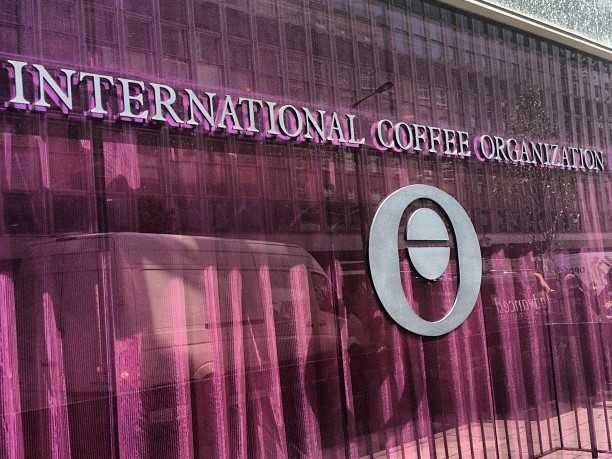LONDON, UK – The ICO composite indicator price rose above 130 US cents/lb for the first time since April as reports emerged from Brazil about lower yields and quality issues related to the 2017/18 crop.
Coffee exports have stabilized in the last two months but cumulative exports remain well above the levels reached in the previous year and leave consumer stocks well supplied.
The production estimate for 2016/17 has been revised up to 153.9 million bags, which constitutes an all‐time record. The output of Arabica and Robusta is estimated to be 10.2% higher and 10.6% lower compared to coffee year 2015/16, respectively.
Coffee prices in July increased significantly with the monthly average of the ICO composite indicator prices up 4% to 127.26 US cents/lb.
Initially, the daily price weakened slightly, reaching its low of 122.71 US cents/lb on 11 July but then increased steadily until the end of the month.
The indicator price climbed to 131.52 US cents/lb on 31 July, an increase of 6.66 US cents/lb from 3 July and the highest level since the end of April 2017.
The breakdown of the group indicators for July reveals that Arabica groups rose more strongly than Robustas when compared to June.
All three Arabica groups registered significant increases as the average prices for Colombian Milds, Other Milds and Brazilian Naturals were up 4.4%, 4.5% and 4.4%, respectively. The monthly average for the Robusta group rose by 2.9%.
As a result of the trends in Arabica and Robusta quotations, the arbitrage, as measured on the New York and London futures markets, increased by 13.1% to 39.68 US cents/lb. Meanwhile intra‐day volatility of the ICO composite indicator price increased by 0.5 percentage points to 7.5%.
Total exports in June amounted to 10.4 million bags, 5.7% higher than June 2016. During the first nine months of coffee year 2016/17 total exports were 4.9 million bags higher than last year when shipments amounted to 87.4 million bags.
The strong export performance has resulted in very large inventories in importing countries.
Market developments in July seem to have been caused by a combination of specific agronomic and wider economic factors potentially affecting coffee supply from Brazil.
Reports have emerged that farmers in Brazil’s Arabica‐growing regions currently harvesting the 2017/18 crop are faced with unexpectedly low yields.
Beans are smaller than usual due to unfavourable weather conditions earlier in the season. This is exacerbated by considerable damage resulting from a berry borer infestation.
The ban on use of the highly controversial but effective endosulfan insecticide used by farmers in the past has led to significant spread of this pest.
Up to 30% of the crop is estimated to have been affected in major growing areas, with a negative impact on bean quality.
Finally, besides these agronomic factors the weakening US dollar lowered the competitiveness of Brazilian coffee on the world market, hampering exports.
The ICO production estimate for crop year 2016/17 has been revised upward to 153.9 million bags, compared to our previous estimate of 151.6 million.
This is mostly due to an increase in output from Indonesia, revised up from 10 million bags to 11.5 million, and a significant revision for Peru to 4.2 million bags.
While production in Colombia has recovered strongly since the coffee leaf rust crisis, growth is slowly tapering off. Annual growth rates have steadily decreased from 9.7% in 2014/15 to an estimated 3.5% in 2016/17.
However, because of adverse weather in recent months, there are concerns that the growth rate for this crop year may have to be revised further downwards.
As a result, total production for 2016/17 is expected to be 1.5% higher than last year, which would be an all‐time record.
Total production of Arabica is estimated to reach 97.3 million bags, up 10.2%, while Robusta output is expected to decrease by 10.6% to 56.6 million bags.
Read the full report at this link.


















